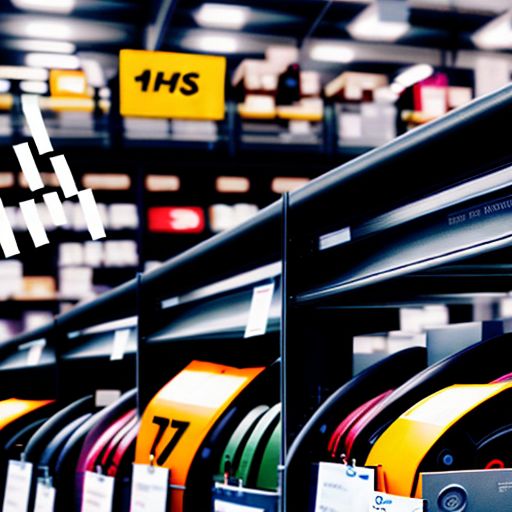Imagine this: a customer walks into your store and finds exactly what they’re looking for, at the right price, thanks to your perfectly managed inventory. Meanwhile, your sales reports are just a click away, giving you real-time insights to make data-driven decisions. This isn’t a dream; it’s the power of Erp Software For Retail.
In today’s competitive retail landscape, staying ahead of the curve is crucial. Retail ERP software has emerged as a game-changer, empowering businesses of all sizes to optimize operations, boost efficiency, and ultimately, drive profitability.
What is Erp Software For Retail?
ERP stands for Enterprise Resource Planning. In essence, it’s a comprehensive software solution that integrates all the core processes of your retail business into a single, unified system. From inventory management and supply chain optimization to sales tracking and customer relationship management (CRM), a retail ERP system provides a centralized hub for managing your entire operation.
Why is ERP Software Essential for Retail Businesses?
The retail industry is dynamic and fast-paced. Here’s why implementing an ERP system is no longer optional, but essential for success:
- Improved Inventory Management: Say goodbye to stockouts and overstocking. ERP software provides real-time visibility into your inventory levels, allowing for accurate demand forecasting and automated replenishment.
- Enhanced Customer Experience: With a centralized system for managing customer data, you can personalize interactions, track purchase history, and provide exceptional customer service.
- Data-Driven Decision Making: Gain actionable insights from detailed sales reports, inventory turnover rates, and customer behavior analytics.
- Streamlined Operations: Automate tedious tasks like order processing, invoice generation, and payment tracking, freeing up valuable time for your team to focus on strategic initiatives.
- Increased Profitability: By optimizing processes, reducing inefficiencies, and making informed decisions, you can directly impact your bottom line.
erp.backinhtravel.com/wp-content/uploads/2024/07/retail-erp-dashboard-669a59.jpg" alt="Retail ERP Dashboard" width="512" height="512">Retail ERP Dashboard
Key Features to Look for in Retail ERP Software
Not all ERP systems are created equal. When choosing the right solution for your retail business, consider these essential features:
1. Inventory Management
- Real-time inventory tracking: Know exactly what you have in stock, across all locations.
- Automated stock replenishment: Set reorder points to trigger automatic purchase orders.
- Warehouse management: Optimize storage space and streamline picking and packing processes.
2. Point of Sale (POS) Integration
- Seamless checkout experience: Integrate your POS system with your ERP for real-time inventory updates and sales tracking.
- Customer loyalty programs: Manage loyalty programs and track customer rewards.
- Mobile POS capabilities: Empower your staff with mobile POS systems for on-the-go sales and inventory management.
3. Customer Relationship Management (CRM)
- Centralized customer database: Store all customer information in one place for a 360-degree view.
- Sales force automation: Track leads, manage sales pipelines, and improve sales team productivity.
- Marketing automation: Create targeted marketing campaigns and track their effectiveness.
4. Financial Management
- Integrated accounting: Manage your finances, track expenses, and generate financial reports with ease.
- Automated invoicing and billing: Streamline your billing process and reduce errors.
- Compliance and reporting: Ensure compliance with tax regulations and generate accurate financial statements.
FAQs about Erp Software For Retail
Q: How much does retail ERP software cost?
A: The cost of ERP software varies widely depending on the vendor, the size of your business, and the features you require. Cloud-based ERP solutions typically have lower upfront costs and offer subscription-based pricing models.
Q: What are the benefits of cloud-based ERP for retail?
A: Cloud-based ERP offers flexibility, scalability, and affordability. You can access your data from anywhere with an internet connection, and the software can easily scale up or down as your business needs change.
Q: How long does it take to implement ERP software?
A: Implementation timelines vary depending on the complexity of your business and the level of customization required. A well-planned implementation can take several months.
Conclusion
Investing in the right ERP software for retail can be a game-changer for your business. By automating processes, providing real-time insights, and empowering your team with the tools they need, you can streamline operations, enhance customer satisfaction, and drive sustainable growth.
Ready to take your retail business to the next level? Start exploring your ERP options today!
Do you have any questions about ERP software for retail? Share your thoughts and comments below!
